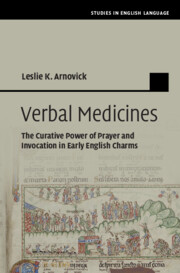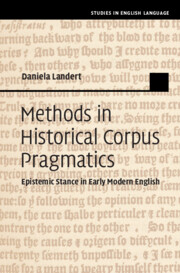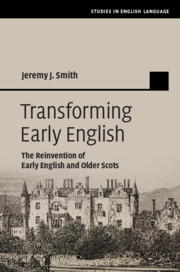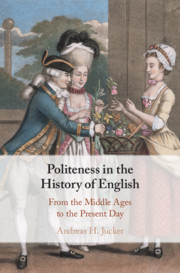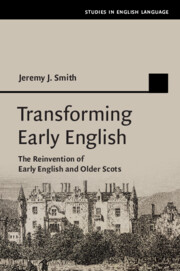Verbal Medicines
Religious texts played a central role in Early English, and this innovative book looks in particular at how medieval Christians used prayers and psalms in healing the sick. At first glance, the variety and multiplicity of utterances, prayers, exorcistic formulas, and other incantations found in a single charm may seem to be random and eclectic. However, this book shows that charms had distinct, logical linguistic characteristics, as well performative aspects that were shaped by their usage and cultural significance. Together, these qualities gave the texts a unique role in the early development of English, in particular its use in ritual and folklore. Arnovick identifies four forms of incantations and a full chapter is devoted to each form, arranged to reflect the lived experiences of medieval Christians, from their baptism in infancy, to daily prayer and attendance at Church celebrations, and to their Confession and anointing during grave illness.
- Reassess the function of incantations by exploring their historical and cultural environment
- Identifies scripted sets of incantations that charms borrow and adapt from ecclesiastical texts in order to effect healing
- Explores charm remedies as a distinct extra-linguistic institution
Reviews & endorsements
‘This is an important and persuasive book that explores the connections between healing, liturgical prayers, and charms, and makes clear how difficult it is to impose hard and fast boundaries between medicine, religion, and magic in early medieval England.’ R. M. Liuzza, University of Tennessee, Knoxville
‘This book systematically explores the allusive power of liturgical language and gestures within Christian rituals for healing. Arnovick asks how and why Christian prayers, the creed, and psalms, as well as Christian gestures such as signing the cross and anointing, become forms of healing in early English medical texts. She argues convincingly that verbal ingredients are as important as the botanicals in charm remedies.’ Lea T. Olsan, Professor Emerita, University of Louisiana at Monroe
‘This is a superbly ordered book that persuasively argues that English healing charms purposefully embedded verbal and performative elements from sacramental and liturgical conventions while retaining their folk-traditional integrity. Arnovick’s respectful approach to late-Saxon charms and her meticulous analysis of their hybridity are masterful.’ Martha Rampton, Professor of History, Pacific University Oregon
Product details
December 2024Adobe eBook Reader
9781009423090
0 pages
This ISBN is for an eBook version which is distributed on our behalf by a third party.
Table of Contents
- Preface
- 1. Invoking baptism
- 2. Psalm charms as aids against illness
- 3. Invoking the name of Mary
- 4. Invoking the visitation of the sick
- 5. The multiplier effect
- Theoretical implications.

